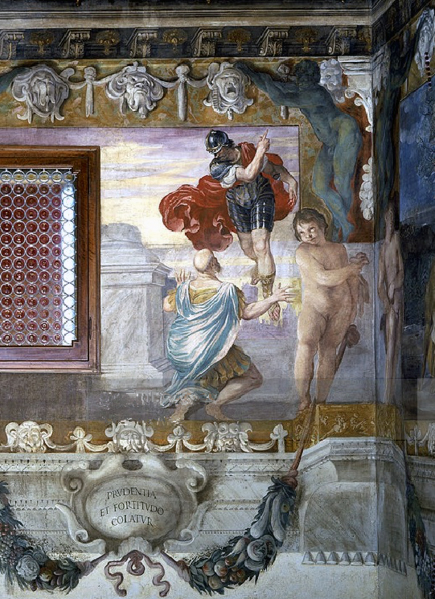‘The Gift’ is the seventh episode of the fifth season of HBO’s fantasy television series Game of Thrones, and the 47th overall. The beginning of this episode is one of the darkest in the series, but since I promised not to tell the details of Ramsay’s infinite sadism, I won’t do it now.
But I’ll tell another terrible thing from the beginning of this episode. A snowfall falls that is about to spoil Stannis’ plans to invade Winterfell. The witch suggests that he should sacrifice his only daughter, who loves her father so much, so that her god will grant a victory. Stannis asks her ‘Have you lost your mind?’ but in a subsequent episode we’ll see that he ends up obeying her.
In my previous post I said that normies prefer fiction to the incomprehensible facts of the real world, and this example illustrates it. In the real world my father, originally sane, ended up obeying the witch of the house to the point of destroying my teenage life. Sometime later I would find out that exactly the same happened in other families. What distinguishes me most not only from white nationalists but from people in general is that, when some of them suffer similar tragedies, they fail to report them in autobiographies. They are able to sublimate their own tragedy by consuming episodes like this one when a father betrays his little daughter, but they never talk about their own family with real names, as I do.
It’s good to see that scene, Melisandre poisoning Stannis’ soul to sacrifice his daughter, because in today’s West the practice continues. While the sacrifice of the child’s body has been prohibited, parents are allowed to sacrifice his or her mind. When a normie hears that someone has been (pseudoscientifically) diagnosed with schizophrenia, if we decipher the psychiatric Newspeak it means that her parents murdered her soul. But who among the visitors to this site has thoughtfully weighed what I say in Day of Wrath?
But even in this episode with such a dark beginning they managed to film, later, several feminist scenes in Dorne: the absurd argument between Jaime and his teenage daughter and, in the cells, how the very masculinised Tyene mocks Bronn by exposing her breasts. These women can range from seduction to fearsome warriors whenever they feel like it: pure screenwriter shit.
However, from a strictly cinematic point of view, the episode shows us a master scene at the end. I have said that to understand Antifa one must understand the movements that preceded it. And I’m not just referring to the Antifa that Hitler and his people had to deal with before coming to power. I mean what we have been saying about the 4th and 5th centuries of our era, the destroying monks of the Greco-Roman world, and a thousand years later: the most fanatical monks among the Fraticelli. In Game of Thrones the figure of the High Sparrow embodies something of the spirit of at least one of those times.
The scene when the High Sparrow shows Cersei the oldest altar of the Faith of the Seven in King’s Landing must be seen, even in isolation. Actor Jonathan Pryce played this fanatic monk of very mild manners extraordinarily. I mean the dialogue immediately preceding the moment he accuses Cersei because of Lancel’s testimony (this is where the title ‘The Gift’ came from).
I have already said it several times but I must repeat it. If someone wants to flee from reality because of how crude reality is, instead of watching television series they should read two novels by Gore Vidal and Umberto Eco about the 4th and 14th centuries.


